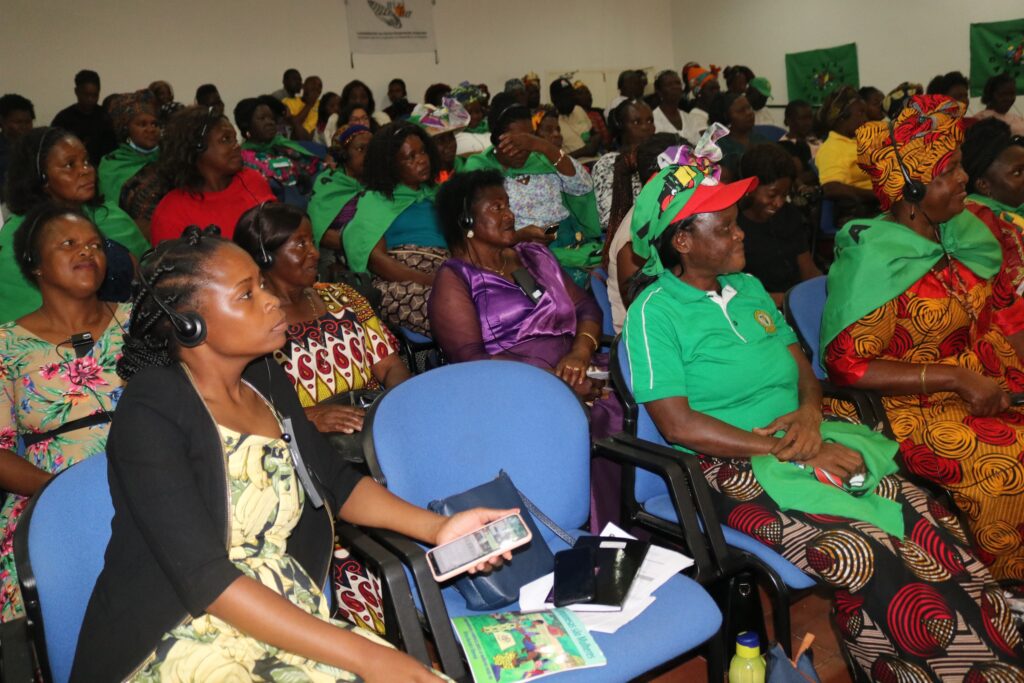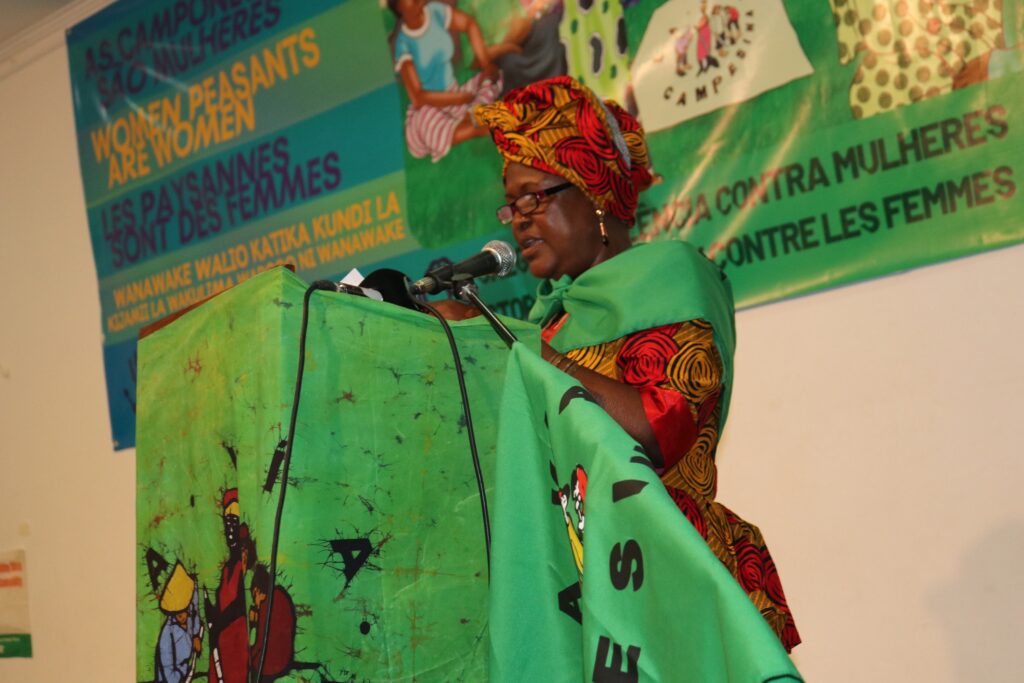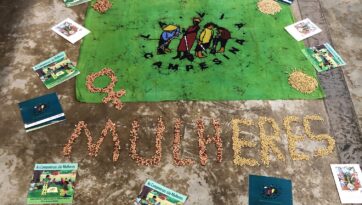UNAC and La Via Campesina Southern and Eastern Africa (LVC SEAf) proceeded on Friday morning, March 17, 2023, at the Brazil-Mozambique Cultural Center, in Maputo, to launch the publication “Women Peasant are Women: Understanding violence against rural women in Eastern and Southern Africa”, a document that addresses the violence that peasant women have been subjected to in the regions of Eastern and Southern Africa.

The occasion gathered 93 people, mostly women, among them, peasants, representatives of Civil Society Organizations, activists, communicators, and other people interested in the theme of the event in Mozambique. There were several moments of emotion and celebration throughout the meeting. With songs raising the struggles of peasant and popular feminism in Africa, the launch of the publication was made official and space was also given for testimonies of peasant women from different countries in Africa, shedding light into their realities, their struggles and their achievements.
“We have prioritized the campaign to end violence against women, because it is fundamental for the movement to understand the situation of peasant women,” said Ana Paula Taucale, president of UNAC, during the launch speech. The campaign is also a tool to open paths towards women empowerment, exploring the proposal of peasant and popular feminism as a promising framework to understand and change the unequal reality in which peasant women live, Taucale reiterated.
The research was based on the realities of seven countries (Mozambique, South Africa, Kenya, Democratic Republic of Congo, Tanzania, Uganda and Zimbabwe) and draws attention to systemic violence and discrimination that peasant women suffer in the region. The study is framed within the framework of LVC’s peasant feminism initiative in the region, as well as its campaign to end violence against women.
The publication is the result of the collection of various experiences and life stories of peasant women, showing the intersectionality between being a woman and being a peasant in Eastern and Southern Africa, focused on some specific forms of violence that are suffered by peasant women, such as: deprivation of access to land, lack of permission to harvest, prohibition of selling agricultural products, gender based cropping, and the invisibility of domestic care and (re)production tasks. The intention is to contribute to laying the foundations of an African peasant feminism and to end violence against women in Africa and the world.

